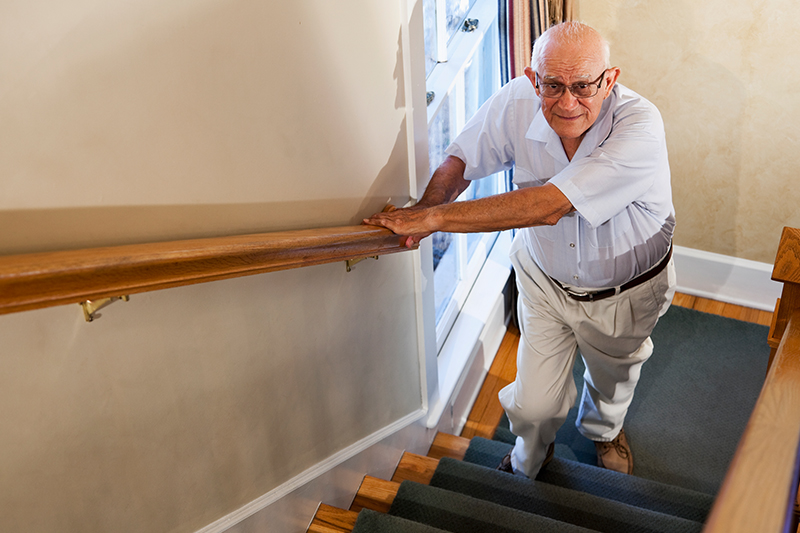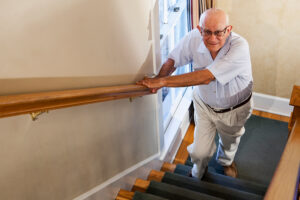Watch for These Early Signs of Mobility Problems in Older Adults


All family caregivers need to know the early signs of mobility problems in older adults in order to prevent falls or other serious injuries.
Benjamin Franklin certainly had it right: An ounce of prevention is really worth a pound of cure. When it comes to noticing and addressing the early signs of mobility problems in older adults, prevention is a must. Falls in seniors lead to 3 million emergency room visits, 300,000 hip fractures, and 32,000 deaths every year, according to research by the CDC.
Preempt a tragedy by keeping an eye out for these warning signs of increasing mobility issues in older loved ones:
- Experiencing dizziness. Dizziness and issues with balance can develop from a variety of contributing factors that ultimately cause problems with mobility. It’s important to discover why these issues are taking place and address them as soon as possible.
- Struggling to sit or stand. Notice if the older adult finds it hard to either stand up from a seated position or to sit back down. Do they need something to hold onto for support?
- Steering clear of stairs. An older loved one who appears to be getting around just fine but is avoiding going up or down stairs could be fearful of falling because of mobility changes.
- Skipping physical activity. Another warning sign is a person who previously participated in some degree of exercise but now is choosing a far more sedentary lifestyle. Exhaustion or weakness can result in difficulties with mobility.
One simple and effective way to gauge mobility and fall risk in older adults is the TUG (Timed Up and Go) test. The test should be carried out on a regular basis. Here is all it will require:
- Place a sturdy chair against the wall.
- Mark a distance of 10’ from the wall.
- Have the senior sit in the chair.
- When you tell them to go, start a timer, and have the person stand, walk to the ten foot mark, turn around, come back and sit down again.
Be sure to stand nearby while the older adult performs the test to provide support if necessary. Track the results over a period of time and share with the person’s doctor for guidance. Find additional information about the test as well as a downloadable one-page assessment sheet here.
If you pick up on any of these signs, it’s time to have a frank conversation with the individual. Let the person know you are concerned, and schedule an appointment for a check-up with the doctor. The utilization of some simple mobility aids could make a world of difference in maintaining safety and independence.
Reach out to Hired Hands Homecare for additional fall prevention tips for seniors, and to learn about the countless ways we are available to improve quality of life for an older adult you love in Novato, Napa, Pleasanton, or the surrounding areas.








Leave a Reply